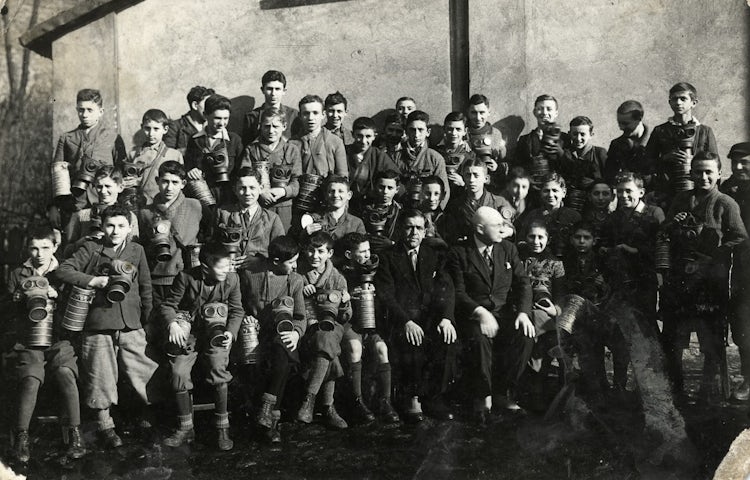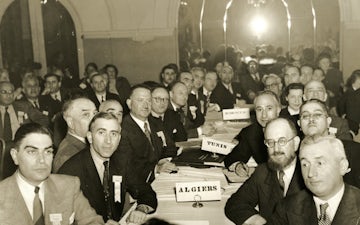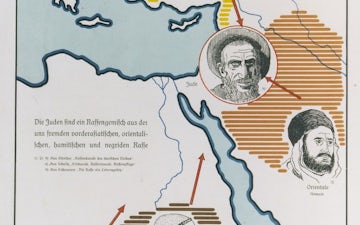
Janusz Korczak was a Polish-Jewish writer, paediatrician, and advocate for children’s rights. A popular author and broadcaster in pre-war Poland, Korczak was forced into the Warsaw Ghetto where he continued to care for the needs of orphans. Despite offers to guarantee his safety, he accompanied the children in his care to the Treblinka death camp in August 1942.
Born Henryk Goldszmit in 1879, the son of a prominent Warsaw lawyer, he supported his family by writing: he took the name Janusz Korczak from Polish literature as his pseudonym. In 1911-12 he became director of a Warsaw orphanage, running it on his principles, based on the rights and dignity of the child.
In the 1920s and 1930s, he became a prominent figure in Polish society, famous for his writings and broadcasts on education and child development. His broadcasts ceased due to growing antisemitism in Poland following the death of Jozef Pilsudski in 1935, but his literary reputation endured.
In 1940, along with the rest of Warsaw’s 350,000 Jews, he was forced to live in the ghetto. The orphanage moved with him into the Ghetto, to premises first on Chlodna Street and then Sienna Street. By the summer of 1942, the orphanage had a population of around 200. Korczak’s diary makes clear both the harsh conditions and his affection for the ever-growing number of orphans.
In August 1942, during the “Great Deportation” from the Warsaw Ghetto, the Nazis turned their attention to the orphanages, clearing them one by one. Despite being offered relative safety — Korczak chose to accompany his charges, leading them to the Umschlagplatz, from where they were deported on 5 or 6 August 1942. We have no way of knowing for sure why he chose to do so, but his writings consistently place the need of the child as paramount. As he wrote in his Ghetto Diary in May 1942: “The city is casting children my way, like little sea shells – and I am just good to them. I ask neither where they come from, nor for how long or where they are going – for good or ill.”




